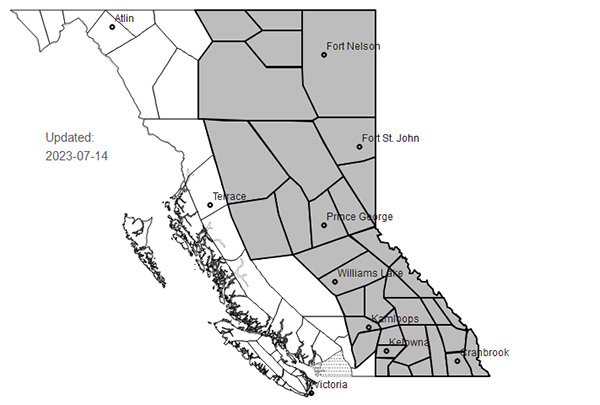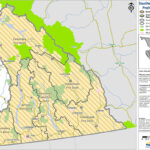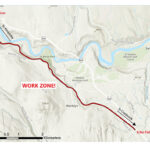Home »

Smoky skies alert issued for the Kootenays
The East and West Kootenay are included in a smoky skies bulletin issued by the provincial government this afternoon.
 The bulletin issued jointly by the B.C. government, First Nations Health Authority, Interior Health Authority and Northern Health Authority advises during smoky conditions:
The bulletin issued jointly by the B.C. government, First Nations Health Authority, Interior Health Authority and Northern Health Authority advises during smoky conditions:
- Follow your common sense;
- Stop or reduce your activity level if breathing becomes uncomfortable or you feel unwell.
- Stay cool and drink plenty of fluids.
- If you have asthma or other chronic illness, carry any rescue (fast-acting) medications with you at all times and activate your personal care plan that has been designed with your family physician.
- Make sure that children and others who cannot care for themselves follow the same advice.
Monitor your symptoms
People respond differently to smoke. Mild irritation and discomfort are common, and usually disappear when the smoke clears.
Exposure to wildfire smoke and the virus that causes COVID-19 can both result in respiratory symptoms such as a dry cough, sore throat, or difficulty breathing. Use the BC COVID-19 Self-Assessment Tool to help determine whether you need further assessment or testing for COVID-19.
If you are unsure whether you need medical care, call HealthLink BC at 8-1-1.
If you are experiencing difficulty in breathing, chest pain or discomfort, or a severe cough, contact your health care provider, walk-in clinic, or emergency department. If you are having a medical emergency, call 9-1-1.
Tips to reduce your smoke exposure:
- Smoke levels may be lower indoors but will still be elevated, so stay aware of your symptoms even when you are indoors.
- Running a commercially available HEPA (high efficiency particulate air) filter can improve indoor air quality in the room where the device is located.
- If you have a forced air heating/cooling system in your home, it may help to change the filter and set the fan to run continuously.
- Reduce indoor air pollution sources such as smoking, burning incense, and frying foods.
- If travelling in a car with air conditioning, keep the windows up and the ventilation set to recirculate.
- If you are very sensitive to smoke, consider moving to another location with cleaner air, but be aware that conditions can change rapidly.
- Maintaining good overall health is a good way to prevent health effects resulting from short-term exposure to air pollution
The next bulletin update will be available July 15. The bulletin can be accessed online.
Lead image: The regions of B.C. highlighted on the map are being impacted or are likely to be impacted by wildfire smoke over the next 24-48 hours.
e-KNOW







